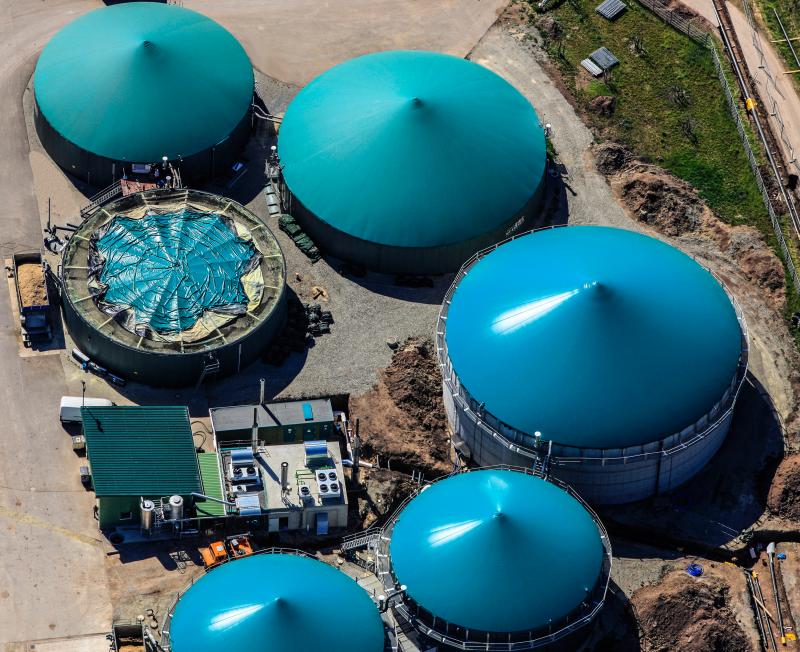Bringing Biogas to Samoa
British High Commission Wellington
#SDGAction39953
Description
The British High Commission has for the third year been a partner to this project, and Samoan customers continue to benefit as a result of this commitment.Out of this recognition for the good work done in Samoa, the BHC wants to build on that partnership. In terms of policy, whilst partners with larger pockets are able to fund other renewable energy systems, we with smaller resources feel it is important to compliment these efforts with alternative solutions. Our commitment and partnership is now in it's third yearSIDS will help us to launch and discuss this innovative project, We will showcase our partnership at SIDS to attract the attention of other possible partners and allow for the concept (which we have proven) to transition into a commercially viable enterprise. BHC Wellingtons strategic objective is to support true sustainable development, by providing growth to businesses, improving peoples livelihoods whilst ensuring we are not damaging the environment. The Biodigester project does this job.About UK aid in the Pacific:The UK has spent over £60m through multilateral agencies in the last five years to help countries in the region cope with the realities of climate change.The UK is funding US$10m of the Pilot Programme for Climate Resilience in Samoa worth US$25 million to build resilience to climate change.The EU is the biggest single donor in the world. The UK makes up 15% of the European Development Fund (EDF) funds. EDF funds for 2008-13 were US $950 million and the UK share of this was US $143 million.
The next stage in our project runs from April 2014-2015. It is two-fold. To provide a greenwaste biodigester in a 5000 litre plastic tank that produces biogas that can be used for some on-site purpose, e.g. cooking, lighting and gas hot water heating at the Women in Business (WIB) nursery. WIB is an organisation that helps sustainable farmers to export organic products and contribute tot he GDP of Samoa.This can be a step towards the bigger project of building a biodigester that would store gas of at least 60 cubic metres (60,000 litres). A key issue is how many cubic metres per day of gas can we produce out of a given size of digester vessel for the feedstocks that are the likely mix in this application. We will get a good sense of this in the next couple of months from the results of the larger digester at the Resource Testing Centre. It is our desire to attract other partners at SIDS for the second phase of this projectIf the best technical application for the big project is to use a large soft digester vessel, this plastic tank can be used for storage of collected rainwater that will be needed for the system.Capacity Building arrangements are in place as is technology transfer. Murray Ward of Samoa Biogas Systems will continue to oversee this project
The New Zealand based not-for-profit social enterprise NGO, BioEenceptionz implements the project with oversight by the Samoa Ministry for of Natural Resources and Environment (MNRE).The Samoa Ministry of Natural Resources and Environment has a strong interest in the potential application of biodigester technologies in Samoa. They have recently led two feasibility studies supported by the EU-funded water and sanitation programme, and the UN FAO office in Samoa. The ˜biogas potential" data that will come from the resource testing programme will provide much needed Samoa-circumstance specific information for a wide range of potential biodigester applications. Samoa Biogas Systems which was called BioEnceptionz is a New Zealand-based entity operating under the principles of a not-for-profit social enterprise. They conceive, plan with host governments and donors, and implement feasibility studies involving advanced biomass and waste-based energy systems suitable for Pacific Island and other developing countries. They provide ˜seeing is believing" proof of the technical and economic applicability of the technologies. They are involved in the development of financeable business models that can be used by local companies when these new systems are rolled out.
Samoa Biogas Systems
The Government of Samoa
SDGS & Targets
Goal 7
Ensure access to affordable, reliable, sustainable and modern energy for all
7.1
By 2030, ensure universal access to affordable, reliable and modern energy services
7.1.1
Proportion of population with access to electricity
7.1.2
Proportion of population with primary reliance on clean fuels and technology
7.2
7.2.1
Renewable energy share in the total final energy consumption
7.3
7.3.1
Energy intensity measured in terms of primary energy and GDP
7.a
7.a.1
International financial flows to developing countries in support of clean energy research and development and renewable energy production, including in hybrid systems
7.b
By 2030, expand infrastructure and upgrade technology for supplying modern and sustainable energy services for all in developing countries, in particular least developed countries, small island developing States, and land-locked developing countries, in accordance with their respective programmes of support
7.b.1
Installed renewable energy-generating capacity in developing and developed countries (in watts per capita)
SDG 14 targets covered
Deliverables & Timeline
Resources mobilized
Partnership Progress

Feedback
Action Network

Timeline
Entity
SDGs
Region
- Asia and Pacific
More information
Countries
Contact Information
Pip morgan, Second Secretary British High Commission

